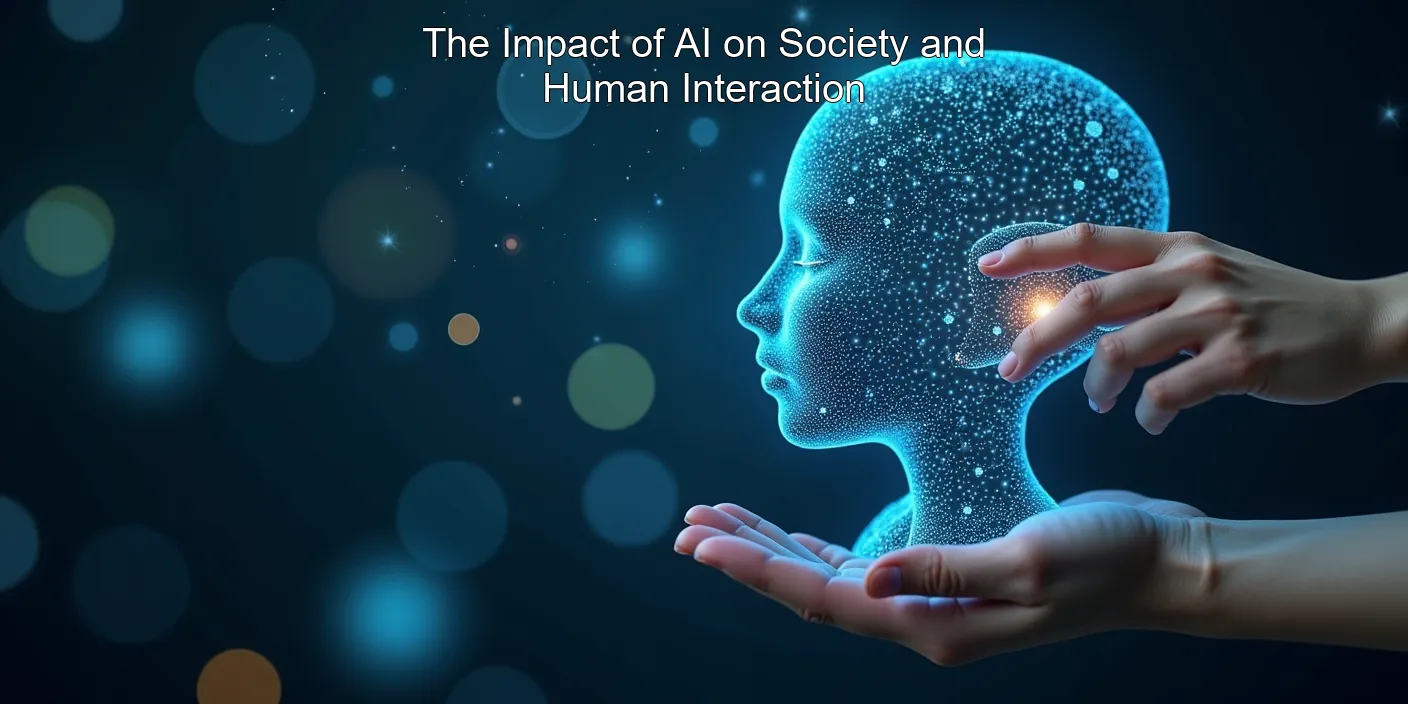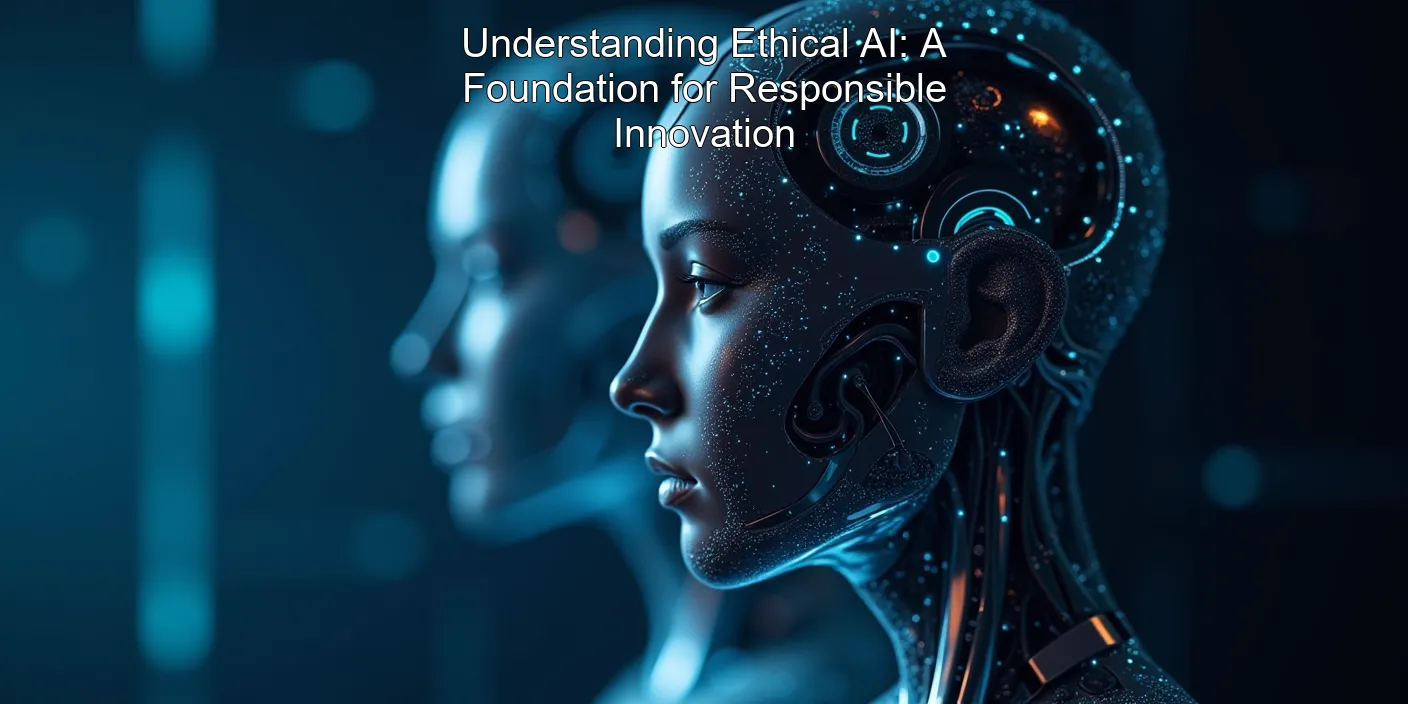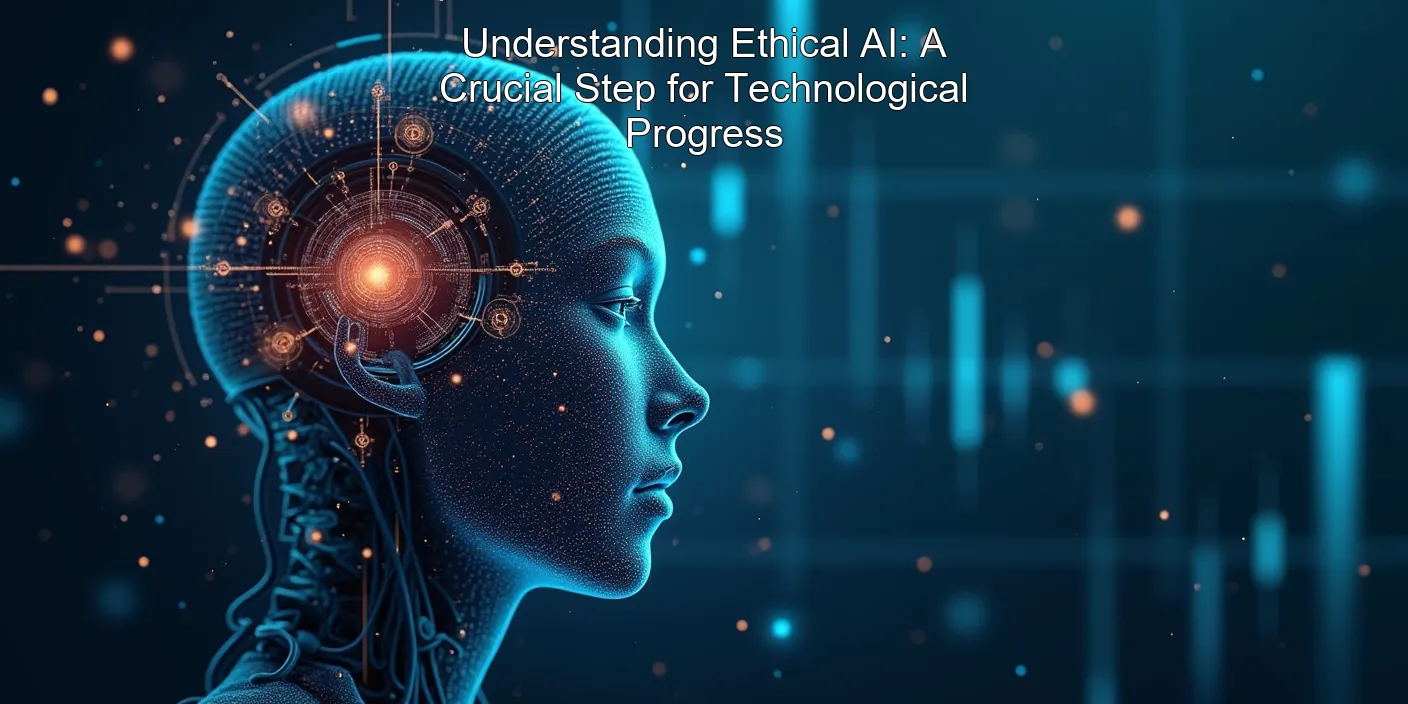Navigating the Ethical Maze of AI: Why Moral Considerations Matter
| Key Aspect | Importance |
|---|---|
| Transparency | Critical for trust |
| Fairness | Ensures equal treatment |
| Accountability | Crucial for responsible AI |
As AI continues to reshape our world, ethical considerations have become paramount. Let’s explore why:

“AI’s Rising Power: Navigating Ethics and Morality”
#EthicalAI, #AIDevelopment, #TechEthics
- Protecting human rights and dignity
- Ensuring fairness and non-discrimination
- Maintaining transparency and accountability
- Safeguarding privacy and data protection
“The development of full artificial intelligence could spell the end of the human race.” – Stephen Hawking
FAQ: Ethical AI Concerns
Q: Why is AI ethics important?
A: AI ethics ensures that artificial intelligence systems are developed and used responsibly, protecting human values and rights.
“AI Ethics: Safeguarding Values in Tech Development”
Q: How can we ensure AI is ethical?
A: By implementing transparent algorithms, diverse development teams, and robust testing for bias.
Q: What are the main ethical challenges in AI?
A: Privacy concerns, algorithmic bias, job displacement, and the potential for autonomous weapons are key challenges.
5 Steps to Promote Ethical AI
- Establish clear ethical guidelines
- Implement diverse and inclusive AI development teams
- Conduct regular ethical audits of AI systems
- Educate the public about AI capabilities and limitations
- Collaborate with policymakers to create appropriate regulations
According to a 2021 study by Gartner, 75% of organizations will hire AI behavior forensic, privacy, and customer trust specialists to reduce brand and reputation risk.
The Impact of AI on Society and Human Interaction

| Area | Potential Impact |
|---|---|
| Employment | Job displacement and creation |
| Healthcare | Improved diagnostics and treatment |
| Education | Personalized learning experiences |
AI is not just changing industries; it’s reshaping human interactions. Consider these points:
- AI-powered virtual assistants becoming ubiquitous
- Social media algorithms influencing information consumption
- AI in decision-making processes affecting lives
- Potential for AI to enhance or replace human relationships
“AI is probably the most important thing humanity has ever worked on.” – Sundar Pichai, CEO of Google
FAQ: AI and Society
Q: How will AI affect jobs?
A: AI will likely automate certain tasks, but also create new job opportunities in AI development and management.
Q: Can AI improve healthcare?
A: Yes, AI can enhance diagnostics, treatment plans, and drug discovery, potentially revolutionizing healthcare.
Q: What are the risks of AI in social media?
A: AI algorithms can create echo chambers, spread misinformation, and potentially manipulate user behavior.
Tips for Responsible AI Integration
- Prioritize human-centered AI design
- Ensure transparency in AI decision-making processes
- Implement robust data privacy measures
- Regularly assess and mitigate potential biases
- Foster public dialogue about AI’s societal impact
A 2022 PwC survey revealed that 86% of CEOs believe AI will significantly change their business operations in the next three years.
As we navigate the ethical maze of AI, it’s crucial to balance innovation with responsibility. The Ethical AI landscape is complex, but by prioritizing moral considerations, we can harness AI’s potential while safeguarding human values. From AI in Everyday Life to AI in Entertainment, ethical guidelines must be our compass. As AI Innovations continue to emerge, let’s ensure they align with our collective ethical standards, shaping a future where technology and humanity thrive in harmony.
The Importance of Ethical AI Development: Shaping a Responsible Future
As artificial intelligence continues to revolutionize our world, the need for ethical AI development has never been more critical. Let’s explore why ethical considerations are crucial in AI development and deployment, and how they shape our technological future.
Understanding Ethical AI: A Foundation for Responsible Innovation

| Key Aspect | Description |
|---|---|
| Definition | AI systems designed and deployed with moral principles and societal values |
| Goal | Ensure AI benefits humanity without causing harm or perpetuating biases |
| Importance | Crucial for building trust and ensuring long-term sustainability of AI technologies |
Ethical AI development encompasses several key principles:
- Transparency and explainability
- Fairness and non-discrimination
- Privacy and data protection
- Accountability and responsibility
“The development of full artificial intelligence could spell the end of the human race… It would take off on its own, and re-design itself at an ever-increasing rate.” – Stephen Hawking
This stark warning from Stephen Hawking underscores the importance of ethical considerations in AI development. According to a recent study by Gartner, 82% of CEOs believe AI-based decisions should be explainable to be trusted.
FAQ: Ethical AI Development
Q: Why is ethical AI development important?
A: Ethical AI ensures that artificial intelligence systems are developed and deployed responsibly, minimizing risks and maximizing benefits for society.
Q: How can we ensure AI is developed ethically?
A: By implementing robust governance frameworks, diverse development teams, and continuous ethical assessments throughout the AI lifecycle.
Q: What are the consequences of neglecting ethical AI development?
A: Neglecting ethics in AI can lead to biased decision-making, privacy violations, and potential harm to individuals or society at large.
The Impact of Ethical AI on Society and Innovation
| Area of Impact | Potential Benefits |
|---|---|
| Healthcare | Unbiased diagnosis, personalized treatment plans |
| Finance | Fair lending practices, fraud detection |
| Education | Personalized learning, equal access to resources |
Ethical AI development has far-reaching implications across various sectors:
- Enhanced trust in AI technologies
- Improved decision-making processes
- Reduced risk of unintended consequences
- Promotion of social justice and equality
“AI is one of the most important things humanity is working on. It is more profound than electricity or fire.” – Sundar Pichai, CEO of Google
This statement highlights the transformative potential of AI. A report by PwC estimates that AI could contribute up to $15.7 trillion to the global economy by 2030, emphasizing the need for ethical guidelines to harness this potential responsibly.
FAQ: Ethical AI and Society
Q: How does ethical AI benefit society?
A: Ethical AI promotes fairness, transparency, and accountability, leading to more equitable outcomes and increased public trust in AI systems.
Q: Can ethical AI hinder innovation?
A: On the contrary, ethical AI fosters sustainable innovation by ensuring AI technologies align with societal values and long-term human interests.
Q: Who is responsible for ensuring ethical AI development?
A: It’s a collective responsibility involving AI developers, companies, policymakers, and society at large.
Practical Steps for Implementing Ethical AI
To ensure the ethical development and deployment of AI, consider these practical steps:
- Establish clear ethical guidelines and principles
- Implement diverse and inclusive AI development teams
- Conduct regular ethical impact assessments
- Prioritize transparency and explainability in AI systems
- Engage in ongoing dialogue with stakeholders and the public
By following these steps, we can work towards a future where AI enhances human capabilities while respecting ethical boundaries. As we continue to explore the vast potential of AI Innovations, it’s crucial to keep ethical considerations at the forefront of development efforts.
The integration of AI in Everyday Life brings both opportunities and challenges. While AI can significantly improve various aspects of our daily routines, it’s essential to address potential ethical concerns, especially in sensitive areas like privacy and decision-making.
As AI continues to shape the entertainment industry, AI in Entertainment raises important questions about creativity, copyright, and the future of human artistry. Balancing innovation with ethical considerations will be key to harnessing AI’s potential in this field.
Ultimately, the pursuit of Ethical AI is not just a technological challenge but a societal imperative. By prioritizing ethics in AI development, we can create a future where artificial intelligence truly serves humanity’s best interests.
Understanding Ethical AI: A Crucial Step for Technological Progress

| Key Aspects | Importance |
|---|---|
| Transparency | High |
| Fairness | Critical |
| Accountability | Essential |
As we dive into the world of ethical AI development, it’s crucial to understand its core principles. Let’s explore the key aspects that shape this field:
“Core Principles Driving Ethical AI Progress”
- Transparency in AI algorithms and decision-making processes
- Fairness in data collection and model training
- Accountability for AI-driven outcomes
- Privacy protection and data security measures
“Technology is a useful servant but a dangerous master.” – Christian Lous Lange
This stark warning from Stephen Hawking underscores the importance of ethical considerations in AI development. But how can we ensure AI remains a force for good?
Q: Why is ethical AI development important?
A: Ethical AI ensures that artificial intelligence systems are developed and deployed responsibly, minimizing potential harm and maximizing benefits for society.
Q: How can we implement ethical AI practices?
A: By establishing clear guidelines, promoting diversity in AI teams, and conducting regular ethical audits of AI systems.
Q: What are the consequences of neglecting ethical AI?
A: Neglecting ethical AI can lead to biased decision-making, privacy violations, and potential misuse of AI technologies.
5 Steps to Promote Ethical AI Development
- Establish a diverse and inclusive AI development team
- Implement rigorous testing for bias and fairness
- Ensure transparency in AI decision-making processes
- Develop clear guidelines for AI use and deployment
- Engage in ongoing ethical education and training
According to a recent study by Gartner, 75% of organizations will shift from piloting to operationalizing AI by 2024, highlighting the urgent need for ethical AI frameworks.
| Area | Potential Impact |
|---|---|
| Healthcare | Improved diagnostics |
| Finance | Fair lending practices |
| Education | Personalized learning |
Ethical AI development isn’t just about avoiding pitfalls; it’s about unlocking the full potential of AI to benefit humanity. Consider these impacts:
- Enhanced trust in AI-driven systems
- Reduced risk of AI-related accidents or misuse
- Increased adoption of AI technologies across industries
- Promotion of innovation within ethical boundaries
“Artificial intelligence is the future, not only for Russia, but for all humankind. It comes with colossal opportunities, but also threats that are difficult to predict.” – Vladimir Putin
Pichai’s comparison emphasizes the transformative power of AI. But with great power comes great responsibility. How can we harness this potential ethically?
FAQ: AI’s Societal Impact
Q: How can ethical AI benefit society?
A: Ethical AI can lead to fairer decision-making, improved healthcare outcomes, and more efficient resource allocation.
Q: What challenges does ethical AI development face?
A: Challenges include balancing innovation with safety, addressing cultural biases, and establishing global ethical standards.
Q: How can individuals contribute to ethical AI development?
A: By staying informed, advocating for responsible AI policies, and supporting organizations committed to ethical AI practices.
Best Practices for Ethical AI Innovation
- Prioritize human-centered design in AI development
- Conduct regular ethical impact assessments
- Foster collaboration between AI developers and ethicists
- Implement robust data governance practices
- Encourage public discourse on AI ethics
A report by PwC estimates that AI could contribute up to $15.7 trillion to the global economy by 2030, underscoring the need for ethical guidelines to shape this growth.
As we navigate the complex landscape of AI development, it’s crucial to prioritize ethics at every step. By doing so, we can harness the incredible potential of AI Innovations while safeguarding against potential risks. The future of AI in Everyday Life depends on our ability to balance innovation with responsibility.

Moreover, as AI continues to reshape AI in Entertainment and other industries, the principles of Ethical AI become increasingly vital. By embracing these principles, we can ensure that AI remains a force for good, enhancing our lives while respecting our values and rights.



